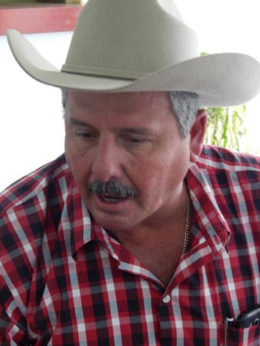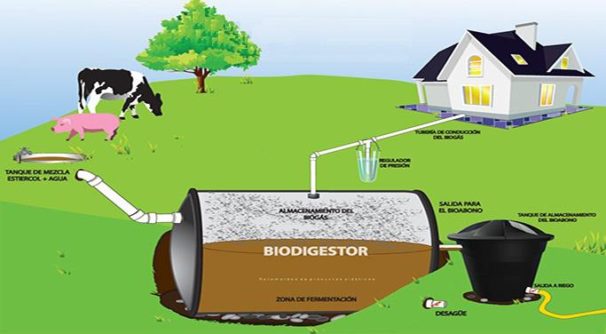
MATANZAS, Cuba – Cuban farmers are betting on ecological agricultural techniques in food production to maintain a balanced, sustainable ecosystem.

On his 100-acre farm, agronomist Ricardo Serrano Masquida raises cattle, sheep, goats, horses, and pigs and also keeps bees and chickens. To provide for all these critters, he cultivates 16 crops for animal feed. He also devotes extensive acreage to fruit trees, including 35 varieties of mangos, 26 types of avocado, and 10 strains of coconut trees.
“We Cuban campesinos have had to work together with the country’s scientific centers, and put our ingenuity to work to achieve greater yields from the soil,” he says.
Cuba has developed a broad-based popular movement of ecological agricultural production, or agro-ecology, as the key to its food security. The movement strives to establish ecological agricultural production as public policy and to improve results by emphasizing more human contributions along with technology. Many of the effective practices promoted have ancestral roots which have previously been dismissed as unfounded or unsophisticated.
During the 1970s, experts began to develop the field of agro-ecology: a multi-disciplinary science focused on achieving food autonomy for the nation and preserving the environment. Workers in Cuba’s fields adopted these practices on their own, even though they had not even heard of the term “agro-ecology,” according to agricultural workers attending a producers’ workshop in February at the Camilo Cienfuegos University of Matanzas.
Cuban researchers have put great effort into popularizing the use of techniques they have studied in order to reduce the use of chemical fertilizers, to protect soils, certify seed quality, and control weeds. These techniques use natural products to eliminate pests and plant diseases. For example, they have developed repellent plants with different tastes and odors, and color traps which distract harmful insects.
One procedure that has been rapidly adopted consists of producing organic material or compost, which adds nutrients to soil. The compost is made from food scraps, eggshells, leaves, and animal manure. Bio-fertilizers and bio-pesticides are also popular. They have been developed by Cuba’s scientific institutions, in particular centers for the reproduction of entomopathogenic (insect-killing) fungi and entomophagous (insect-eating) parasites.
In the 1990s, this work took on greater importance. Following the collapse of the Soviet Union and the tightening of the U.S. blockade, it became more difficult for Cuba to import agricultural supplies.
Agronomist-campesino Serrano, who works at La Victoria farm in the town of Sabanilla, attended the conference in Matanzas. He commented: “We constantly need to innovate to make our agricultural system sustainable. On my farm, 75 percent of the production is reached with agro-ecological practices, and 25 percent with conventional methods.”
Serrano considers himself a promoter of agro-ecological techniques. He believes in sharing such knowledge and experiences campesino to campesino, maintaining a continual process of exchange and communication. He likewise advocates adherence to agricultural norms to avoid irresponsible conduct that damages the environment and soils. “The greatest challenge is to get the successes obtained by scientific researchers into the hands of producers,” he says.
Another agro-ecological practice which has been well-received is the construction of biodigesters on farms. Biodigesters treat livestock waste. In the process, they generate clean renewable energy for rural families and communities.

Young electrical engineer Alexander López Savrán is a staunch advocate of biodigester technology.
After completing a Master’s degree in electrical systems at Marta Abreú Central University in Las Villas, Lopez began working eight acres of land to raise pigs. López was granted the right to use the land by the Cuban state. The farm is a model of energy self-sufficiency, he explains. “All the energy used in the kitchen and to supply household appliances comes from the biodigesters.”
Lopez’ main task is to teach other producers, demonstrating how clean energy can be produced with few resources. His friend, Yunier Paz Martínez, takes the lessons to heart. Paz, a member of the Sergio Soto Credit and Services Cooperative in the municipality of Cabaiguán, is a computer technician who also raises pigs.
“In the area where I live,” Paz explained, “I built an energy distribution network with the biodigesters to supply several families. I can supply gas via pipes to eight houses and could add another 50. My plan is to expand my stock of pigs and develop bio-gas as a clean energy source to be used by Cuban campesinos.”
Another farmer and academically-trained agronomist, Noel González, also built a biodigester on his farm and supplies his family home and that of a neighbor. The residue produced by the biodigester is dumped into an oxidation lagoon, and this nutrient-rich water is used to irrigate crops.
On his farm, Flor del Cayo, affiliated with the Patria o Muerte Cooperative in Cabaiguán, many agro-ecological practices are used, Paz said. “I apply the knowledge I acquired during my university studies and pay attention to scientific-technical advances to obtain greater yields in my production. My greatest concern is taking advantage of scientific innovations to care for the environment and protect soils.”
Millions of small farmers around the world resort to chemicals because they provide immediate results. They are unaware of the benefits of agro-ecological techniques, or they believe that such practices produce lower yields per acre than those attained with conventional methods.
Cuban researchers point out that these are totally false assumptions, citing studies in Europe that point to crop yields some 30 percent greater when agro-ecological cultivation practices are used, and studies in Central America reporting yields that have been three times as great in some instances.
This is an edited version of an article that originally appeared in Granma.












Comments